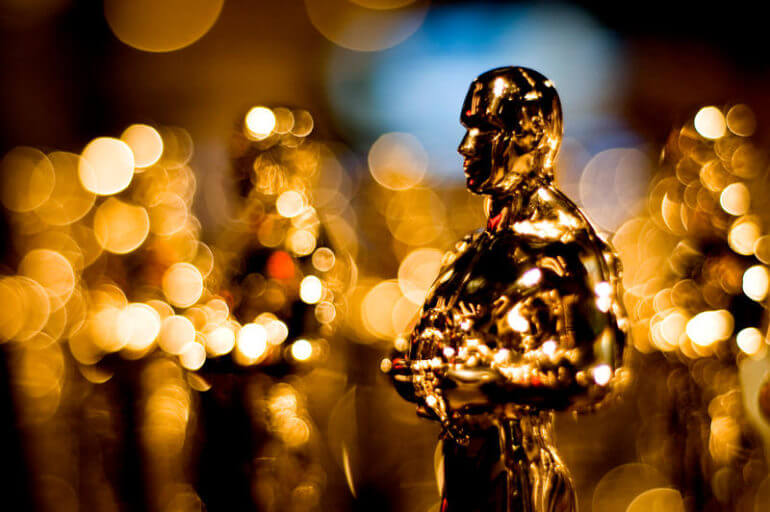
Jonathan Glazer’s Oscar Speech: A Master Class in Modern Antisemitism
Last night, Jewish director Jonathan Glazer won an Oscar for The Zone of Interest, his harrowing film about the commandant of Auschwitz during the Holocaust.
The film was noteworthy because it didn’t show the horrors of the camp: we mostly just hear gunshots, screams, and other sounds in the background as the family goes about its otherwise ordinary life.
Glazer’s speech ended as follows:
“Our film shows where dehumanization leads at its worst… right now, we stand here as men who refute their Jewishness and the Holocaust being hijacked by an occupation which has led to conflict for so many innocent people. [Applause].
Whether the victims of October 7 in Israel or the ongoing attack on Gaza, all the victims of this dehumanization. How do we resist? [Applause.] Alexandra Bistron-Kotodziejczyk, the girl who glows in the film as she did in life, chose to. I dedicate this to her memory and her resistance.”
(Alexandra is a Polish girl depicted in the film hiding apples in the dirt for prisoners to eat.)
This speech left me with two simple questions:
Why is Glazer talking about Israel and Gaza in a speech about his Holocaust film? Why is the room thundering with applause?
I think the answers to these questions lie in several phenomena:
- The universalization of Jewish suffering
- The erasure of actual Holocaust victims
- The fixation on the moral state of Jews
UNIVERSALIZATION
There’s a strong expectation that Jewish suffering be universalized: in other words, that our stories become metaphors about morality for everyone to learn from. Like the Torah itself, the story of the Holocaust is often universalized. This can be positive up to a point, but not if it comes at the cost of understanding antisemitism as a specific phenomenon. A society that doesn’t understand antisemitism (in particular) risks massacring Jews (in particular).
At the same ceremony, Jennifer Lawrence praised Lily Gladstone’s performance as an Osage woman in Killers of the Flower Moon. Lawrence noted that the film is about a dark chapter in U.S. history.
She didn’t universalize the story of the Osage.
In an even more dramatic moment, Mstyslav Chernov won Best Documentary Feature for 20 Days in Mariupol. His speech was a stirring tribute to the Ukrainian people and their resilience in the face of the Russian invasion.
He didn’t universalize the story of Ukraine.
ERASING HOLOCAUST VICTIMS; CENTERING SAVIORS
Glazer, astonishingly, didn’t even mention Holocaust victims in a speech about his Holocaust film.
Instead, he honored a single Polish person who is shown trying to help Jews.
(Many people like to imagine that they would’ve saved Jews during the Holocaust. Most of us who imagine this are wrong.)
THE FIXATION ON JEWS’ MORAL STATE
Many Jews and non-Jews alike are fixated on the moral state of Jews. We often hear people say:
- “The Jews learned nothing from the Holocaust.”
- “The oppressed have become the oppressor.”
Glazer’s implication is that there is some lesson about dehumanization that Jews, specifically, have failed to learn.
Imagine a member of any other minority group winning an Oscar for a film about the atrocities their group experienced. Now imagine their acceptance speech changing the subject to their group’s own supposed wrongdoing.
It’s important to note that it wasn’t always like this.
Thirty years ago, Schindler’s List won the Best Picture Oscar. Its producer, Branko Lustig, gave the following acceptance speech:
“My number was 83317. I am a Holocaust survivor. It’s a long way from Auschwitz to this stage…People died in front of me in the camps. Their last words were: ‘Be a witness of my murder. Tell the world how I died.
Remember…’ By helping Steven to make this movie I hope I fulfill my obligation to the innocent victims of the Holocaust. In the name of the six million Jews killed in the Shoah and other Nazi victims, I want to thank everyone for acknowledging this movie.”
Lustig commemorated the Holocaust: the subject of the film. He didn’t universalize it or apologize.
I’m left with many questions to consider:
- Why did Glazer feel the need to denounce Israel in a speech about his Holocaust film?
- Do we see members of other communities doing similar things in similar contexts? Are they expected to publicly denounce other members of their ethnicity or religion?
- If we did, how might we react?
- What precedents in Christian and Muslim history might lead us to scrutinize Jews today?
- What is gained and lost when we universalize a historical tragedy? How should we strike this balance?
- Why might we be tempted to universalize the Holocaust instead of learning about antisemitism?
It’s these questions that we are haunted with as Jews in the world today, and ideally, the world can learn from.
If you found this content meaningful and want to help further our mission through our Keter, Makom, and Tikun branches, please consider becoming a Change Maker today.







5 comments
Sort by
Shame on him. Hasn’t he learned anything about history. The other nations of the world don’t care if you denounce your Judaism they still consider you a Jew. As did Hitler (May his name be obliterated)
I agree
Glasses is a self hating jew
Thank you
Stephen Spielberg, speaking shortly after Glazer, said nothing about the hate speech, nothing about freeing the hostages, did not wear a yellow flag to represent the hostages. A complete coward.
Why was it necessary to “refute” his Jewishness. Aren’t Jews compassionate people that regret the harm of innocents (even as the seek to protect
their own)? He can refute and distance himself as much as he likes but I’m fairly certain Hamas still thinks of him as a Jews.
Like the evil son – he exempts himself -“yotzer min haklal”
The whole speech was deplorable on so many levels.